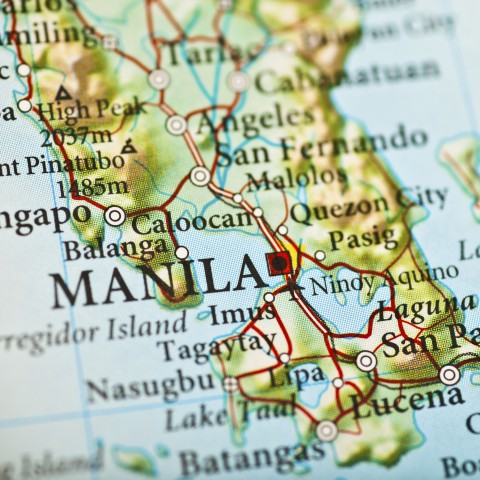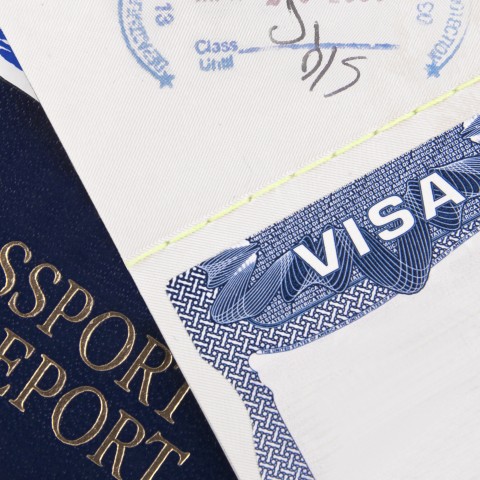
The Philippines is one of the most awesome countries in Southeast Asia. It’s a country with a very rich culture and breathtaking scenery. More importantly, it’s a place filled with kind and hospitable people. That’s why, despite the country’s imperfections, the Philippines never runs out of tourists and people who wish they could live here permanently.
Being able to temporarily live in the country is also on the bucket list of many foreigners studying the Filipino language. One of the most common concerns for these individuals is where to find jobs in the Philippines. After all, there’s no better way to master a new language than to immerse oneself in the culture of the people who natively speak that language.
If you’re wondering how to find a job in the Philippines, this guide is for you. Finding a job in the Philippines might be difficult for foreigners due to the country’s high unemployment rate—but the good news is that it’s not impossible. In this article, we’ll show you which cities in the country you’ll have a higher probability of getting a job, as well as which websites you can check to look for career opportunities. We’ll also give you some tips on what kind of jobs to look for and what permits or other requirements you might need.

Finding a job in the Philippines might be difficult for foreigners, but it’s not impossible.
 Table of Contents
Table of Contents
- Where to Find Jobs in the Philippines
- Language Teaching Jobs
- Blue-Collar Jobs
- Office Jobs
- Jobs Related to Health, Science, and Technology
- Freelancing Gigs
- Increase Your Chances of Getting Hired by Learning Filipino!
1. Where to Find Jobs in the Philippines
Knowing exactly where to find jobs in the Philippines can be quite tricky considering that the country is an archipelago composed of over seven thousand islands. One thing you need to know, however, is that the country is divided into three major islands with each island having at least one major city. Luzon, being the most populated of the three, is home to the National Capital Region (NCR), which comprises a total of 16 cities, including Makati City and Quezon City. In the Visayas, you have Cebu City on Cebu Island and Iloilo City on Panay Island. If you go south to Mindanao, you have Davao City and General Santos City.
1 – Major Cities to Consider When Looking for Jobs in the Philippines
Jobs are available countrywide, but you’ll have a higher chance of landing one if you consider these cities:
- Makati City
- Quezon City
- Cebu City
- Iloilo City
- Davao City
To figure out where to find the best job to suit your preferences and skills, you’ll need to consider the industry you’re entering. For instance, multinational companies and BPOs are mostly based in large cities like Metro Manila, Cebu, and Iloilo. New sectors are also gradually rising in places like Baguio and Dumaguete. When it comes to the healthcare industry, most of the activity is concentrated in the National Capital Region, but it’s quite saturated there already so you might have a better chance in rural areas or smaller cities.
If you’re interested in tourism jobs in the Philippines, each province or city in the country has its own attraction, so you should be able to find something in whichever region you choose. In terms of manufacturing jobs, areas around Metro Manila are great candidates. These include Batangas, Cavite, Pampanga, and Bulacan.
- ➜ Here’s a list of vocabulary for major cities in the Philippines to help you get more familiar with your future surroundings.

Multinational companies and BPOs are mostly based in large cities like Metro Manila.
2 – What Jobs Can Foreigners Apply for in the Philippines?
The Philippines allows foreigners to become employees in the country, provided their job of choice falls within the 15 categories set by the government in 2019:
- Professional athletes, coaches, trainers, and assistants
- International performers with exceptional abilities
- Artists, performers, and their staff who perform for a fee
- Service suppliers who will perform temporary services and will not be receiving a salary from a Philippine source
- Treasure hunters authorized by the government to look for hidden treasures
- Movie and TV crew authorized to film in the country
- Journalists practicing their profession
- Trainees assigned to government agencies and private entities
- Lecturers, researchers, and others pursuing academic work
- Religious missionaries and preachers
- Commercial models
- Chefs
- Consultants
- Professionals
This list may appear comprehensive, but it’s implicative in nature. If you can show that your intention to work in the country falls within the confines of qualified activities and warrants the approval of related government agencies, then you may be granted a Special Working Permit (SWP).
Don’t worry if you’re not fluent in Tagalog yet. English is the primary means of communication in the Philippine corporate world, which means being fluent in Tagalog is not a requirement when looking for a job.
- ➜ Need help with your job interview? Here are some of the most useful job interview questions in Filipino.
3 – Working Permits and Visa
If you want to work in the Philippines as a foreigner, you need to find a company that will be willing to give you the paperwork to apply for a working permit. You specifically need to obtain an Alien Employment Permit (AEP) from the Department of Labor and Employment (DOLE). The AEP is required of any foreign national seeking admission to the country for employment.
Foreign nationals seeking short-term work are only required to secure a Special Work Permit (SWP). This allows expatriates to work under a Tourist Visa (9A), provided that the contract does not go beyond three months. Nevertheless, the visa is extendable for a maximum of three months.
Speaking of visas, the most common type of work visa is the 9 (G) visa. Also known as the Pre-Arranged Employment Visa, the 9 (G) allows foreign employers in the country to employ foreign nationals. This gives the holder the freedom to enter and exit the country while working for a company licensed to do business under Philippine laws.

The Pre-Arranged Employment Visa allows foreign employers in the Philippines to employ foreign nationals.
2. Language Teaching Jobs
Foreigners are allowed to work as teachers in the Philippines. However, neither private nor public universities hire foreigners as full-time faculty members at the time of this writing.
You have a few options if you want a teaching job here. First off, you need to understand that there are already a lot of competent English teachers in the country working in English Tutorial Centers. If you’re fluent in a language other than English, then you may have a higher chance of getting a job as a language teacher. For instance, there are Japanese- and Korean-language tutorial centers all over Metro Manila. You can also find private tutorial jobs for other languages like Thai and Russian.
The most common requirement for language teaching jobs in the Philippines is a language proficiency test certificate. If you’re going to teach English, you’ll need to possess a Teaching English as a Foreign Language (TEFL) certificate. If you’re going to teach Japanese, then you’ll need one for passing the Japanese Language Proficiency Test (JLPT).
Here are the top websites to help you find available language teaching jobs in the Philippines:
3. Blue-Collar Jobs
Beginning in February of 2019, the Philippine government decided to cease issuing permits to foreign nationals who want to be employed in blue-collar jobs in the country. There are only two conditions under which you can work in this industry. The first one is that you possess special skills that no other Filipino does. The second one is that a certain company has hired you personally to work for them.
Here are the best job finder websites in the Philippines to help you find available blue-collar jobs:
- ➜ Don’t forget to familiarize yourself with the most common Filipino words for occupations.

The Philippine government has ceased issuing permits to foreign nationals who want to be employed in blue-collar jobs.
4. Office Jobs
Foreigners can get office jobs in the Philippines, as long as they can find a company that will be willing to give them the paperwork to get a work visa. Possible options for office jobs for foreigners in the Philippines include the following:
- Call center jobs
- Secretarial jobs
- Business analyst jobs
- Receptionist jobs
- Interpreter jobs
- Sales consultant jobs
Here are the top websites to help you find office jobs in the Philippines:
5. Jobs Related to Health, Science, and Technology
Jobs in this field are specialized, so as long as you have the skills required for such jobs, you won’t have a hard time getting hired. Whether there are jobs available for you is the question, however. Philippine companies in this field will always prioritize Filipinos, but if you have skills that Filipino applicants don’t already possess, you’ll have a huge chance of getting hired. That said, there are private companies in this field that only hire foreigners for certain positions. Possible positions that may be available for this field include the following:
- Lecturer
- Research specialist
- Technical assistant
- Laboratory analyst
- Machine technician
- Chemist
- Environmental scientist
The following are some websites you can check for available jobs in this sector:
- ➜ Speaking of office jobs, here’s a lesson on Filipino expressions to use at the office.
6. Freelancing Gigs
There are no specific websites for part-time jobs. If you wish to find one, you can use any of the websites mentioned above. However, some websites might increase your chances of finding a freelancing gig. If you’re particularly concerned about where to find online jobs in the Philippines, then you have websites like Onlinejobs PH. This website is dedicated to providing online-based jobs to Filipinos, but foreigners can apply here too.
Indeed.com is another great site you can use to look for part-time jobs. If you can write well, you can find part-time or freelance writing jobs via these websites. Keep in mind, though, that most employees hiring through these sites are foreigners, too, which means your salary won’t be sourced from the Philippines. That would be an advantage because there really aren’t a lot of restrictions for foreigners working online-based jobs with salaries coming outside of the country. If you’re a foreigner visiting the country for a few months, finding freelance remote jobs in the Philippines this way would be the best option for you in terms of having an extra source of income.
- ➜ Check out our list of Filipino words and expressions related to computers and computer use.

Freelance writing is one of the most lucrative jobs you can do as a foreigner in the Philippines.
Increase Your Chances of Getting Hired by Learning Filipino!
Whether you’re looking for a job in the Philippines to learn the language or vice-versa, one thing is for sure: FilipinoPod101 can help you pick up speed in your journey of learning Filipino or Tagalog.
FilipinoPod101 can provide you with free resources that will make it easier for you to study the Filipino language. This includes a comprehensive list of lessons on vocabulary, grammar, and pronunciation. If you’re looking for more guides like this one, you’ll find them on the site’s blog page.
What separates FilipinoPod101, though, is our innovative approach to language learning—not to mention our MyTeacher service, designed to accelerate your progress toward your learning goals! With MyTeacher, you can have a real professional Filipino teacher guide you and give you constant feedback as you move ahead in your lessons.
We hope that you found our guide on how and where to find jobs in the Philippines valuable! If you believe we missed any detail, please let us know in the comments and we’ll do our best to answer any questions you may have.










